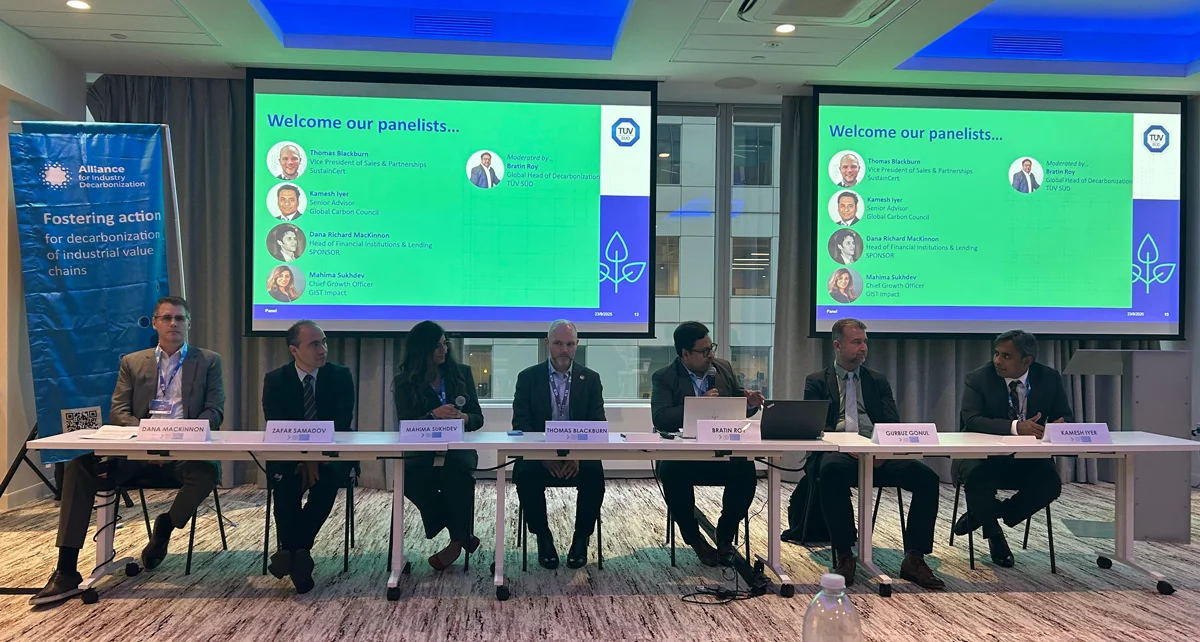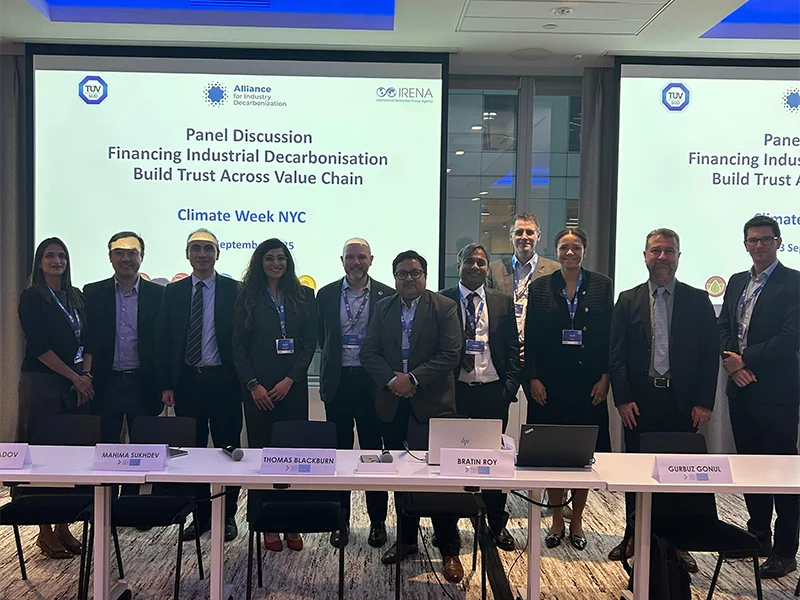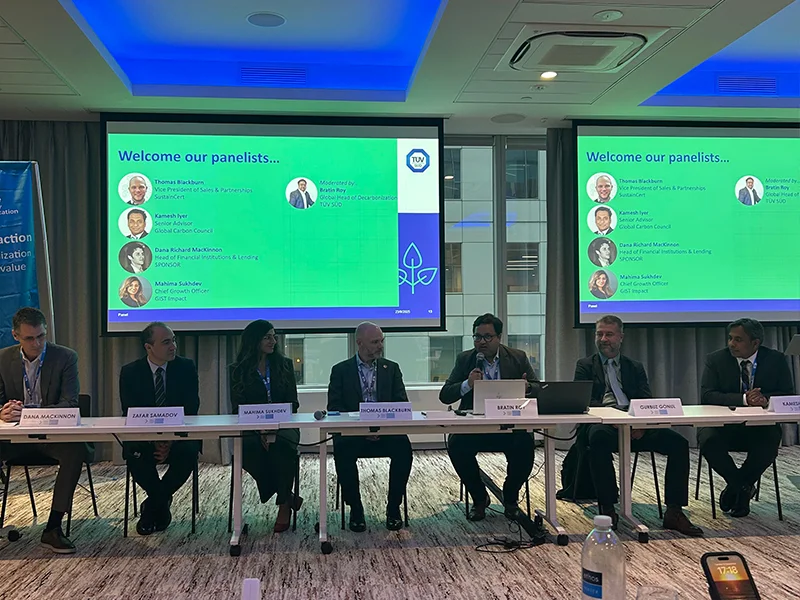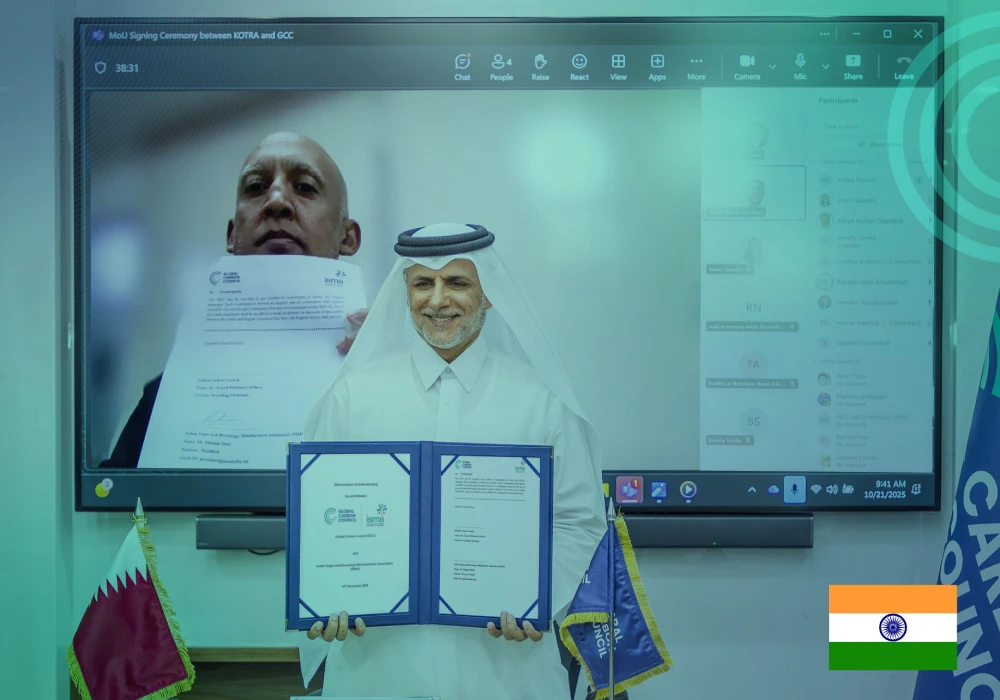
As carbon markets face mounting pressure to demonstrate their integrity and effectiveness, a key question dominated this year’s IETA North America Climate Summit: How can we rebuild trust while scaling climate finance? The Global Carbon Council (GCC) arrived with answers—showcasing digital-first infrastructure and real-time monitoring systems designed to enhance transparency, traceability, and investor confidence across carbon markets.
Represented by Senior Advisor Kamesh Iyer, GCC engaged with government officials, financial institutions, and industry leaders in critical discussions on data standardization, dMRV (Digital Measurement, Reporting, and Verification), and financing pathways for industrial decarbonization.
Kamesh participated in two key sessions: the Roundtable on Piloting the Common Carbon Credit Data Model (CCCDM) as an invite-only, closed-door participant, and the Panel on Financing Industrial Decarbonization, organized by TÜV SÜD and the Alliance for Industry Decarbonization (AFID).
Building Trust for Industrial Decarbonization
On the panel dedicated to Financing Industrial Decarbonization, Kamesh shared insights on how digital infrastructure and dMRV can bridge the finance gap for industrial climate solutions. He discussed GCC’s digital innovation and how GCC intends to
- Streamline transaction processes for ACCs
- Strengthen oversight and transparency for climate finance.
- Enhance confidence and reliability for investors and market participants, particularly in emerging economies.


Driving Standardization Through the CCCDM Roundtable
The CCCDM roundtable, convened as input to the G20 Sustainable Finance Working Group, explored how harmonized data structures can improve carbon credit transparency, interoperability, and digital MRV across markets.
Throughout the New York Climate week event, Kamesh emphasized GCC’s Carbon Market Infrastructure (CMI) solution as a practical, ready-to-use model for advancing these goals.
Key features of the CMI solution include:
- Digital, Integrated, and Interoperable: A registry system that seamlessly connects national registries, project portals, and transaction platforms under one unified interface.
- “Mother Registry” Functionality: Enabling cross-border and cross-registry transfers of ITMOs with full traceability, safeguarding environmental integrity.
- Automated Compliance: Real-time digital MRV integrated with UNFCCC reporting tools for BTRs and Article 6.2 submissions, reducing reporting burdens and increasing accuracy.
- Modular and Scalable: A flexible, cost-efficient system that countries can tailor to national priorities while ensuring global alignment.
Kamesh emphasized that standardized and digital MRV-enabled, digital-first solutions like the CMI are essential for operationalizing Article 6.2, ensuring consistency in carbon credit data, and unlocking trust in the system.
Expanding Clean Energy Access through the World Bank’s ASCENT Program
Beyond the summit sessions, GCC’s ongoing work was presented through its role in the World Bank’s Accelerating Sustainable and Clean Energy Access Transformation (ASCENT) program.
Under ASCENT, GCC is developing a dedicated Energy Access Standard Portal to channel carbon finance into distributed renewable energy and clean cooking solutions across Eastern and Southern Africa. This initiative will:
- Apply digital MRV systems for transparent and scalable monitoring of energy access projects.
- Streamline validation and verification, lowering barriers for multi-country and large-scale programs.
- Recognize the broader social and community-level co-benefits of clean energy deployment.
- Fully digitize the program cycle—from project registration to issuance—reducing costs and improving turnaround times.
This work builds on GCC’s independent governance, robust methodologies, and alignment with international best practices, setting a global benchmark for how carbon markets can accelerate energy access while delivering both environmental integrity and development impact.
Looking Ahead
From data standardization, to launching a next-generation registry platform, and advancing energy access through the ASCENT program, GCC is demonstrating how digital-first carbon market infrastructure with integrated digital MRV can make Article 6.2 operational, build investor confidence, and direct climate finance to where it is needed most.
“Trust in carbon markets can only be restored through transparency, interoperability, and proven ability to mobilize real investment into ground-level solutions. GCC’s digital-first infrastructure, powered by robust digital MRV, is central to this—with the ASCENT program serving as a cornerstone example” said Kamesh Iyer, Senior Advisor, GCC.
With its expanding suite of solutions, GCC continues to lead the way in creating high-integrity, inclusive carbon markets that not only reduce emissions but also deliver meaningful benefits to communities worldwide.





